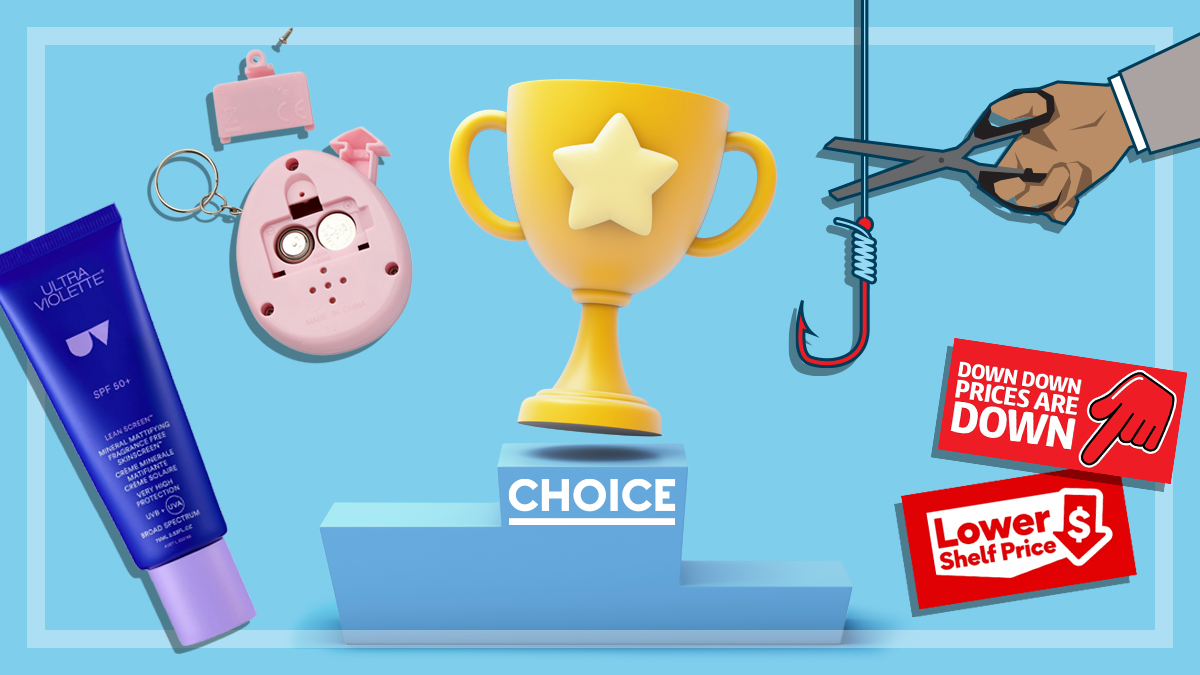Get our independent lab tests, expert reviews and honest advice.
9 things every consumer should know about their rights

Many of us know we have rights when it comes to buying products or services that turn out to be faulty.
But if you’ve ever had the experience of arguing your case while being unsure just what those consumer rights entail, you’ll understand the importance of regularly refreshing your memory about what does and doesn’t apply under Australian Consumer Law (ACL).
Here are nine things you need to know to successfully exercise your rights.

1. You don’t always get to choose between a repair, replacement or refund
When a product or service fails to meet a consumer guarantee, your right to choose a remedy depends on whether it’s a major or minor failure.
If it’s a major failure, you have the right to ask for your choice of a repair, replacement or refund. If you want a refund, the seller can’t make you accept a credit note or exchange or replacement.
If the fault is minor, you can ask for your preferred remedy but ultimately it’s up to the retailer to decide whether to offer a repair, refund or replacement.
2. Two or more minor failures can equal a major failure
As of December 2020, an amendment to the ACL says that if a product has two or more minor failures, and you would not have bought the product if you knew the nature and extent of these failures, it is considered a major failure. (These failures don’t need to relate to the same consumer guarantee.)
This important clarification gives weight to your right to ask for your choice of repair, refund or replacement.
3. You don’t need an extended warranty
Businesses may try to convince you to buy an extended warranty, but in most cases they’re unnecessary.
Under the ACL, retailers must offer you a refund, repair or replacement on any item that has a major failure. These rights remain in place for a reasonable amount of time following a purchase, even if the warranty has expired. (Our 2018 investigation reveals how long many appliances should last.)
An amendment to the ACL says that if a product has two or more minor failures … it is considered a major failure
In some cases, extended warranties may provide additional rights beyond what’s granted by consumer law. But before you sign up, ask yourself these five questions about taking out an extended warranty.
4. Items bought before 2011 aren’t necessarily covered
The consumer guarantees that ensure your rights under the ACL only apply to products or services bought on or after 1 January 2011.
But you may still have rights under the previous Trade Practices Act. Products or services bought before 1 January 2011 must meet the statutory conditions or warranties that were valid at the time. If they don’t, you may be entitled to a remedy from the seller.

5. You don’t have to sign away your rights to get a refund
Over the years, CHOICE has heard several cases of companies asking people to sign a non-disclosure agreement (NDA) that waives their right to publicly badmouth the company in order to obtain a remedy for a dodgy product or service.
There may be a valid reason to sign an NDA when settling a dispute with a seller, but a company must not make misleading claims that your rights to a repair, refund or replacement under the ACL are contingent on you signing one.
6. ‘No refund’ signs are unlawful
Many of us have seen signs saying ‘no refund’ or ‘no refund or exchange on sale items’ in stores. These are actually unlawful as it implies that you can’t get a refund under any circumstances, when in fact the ACL says you are entitled to a remedy for a faulty product.
However, signs that state ‘No refunds will be given if you have simply changed your mind’ are acceptable.
7. I’ve changed my mind, what are my rights?
Consumer guarantees don’t apply if you’ve changed your mind, found it cheaper elsewhere, realised you don’t actually like it or have no use for it. Businesses are only obligated to refund or replace the item if it’s faulty.
However many retailers will issue refunds as a sign of good will, so it’s always worth checking a store’s policy before buying something and to find out whether you need the original packaging and receipt for a change of mind refund or exchange.
8. You may be entitled to recover postage or transportation costs for returns
If you think there’s a problem with a product and it can easily be returned via post or courier, keep your receipts as you can ask to be reimbursed for the cost. (If the product is large, heavy or difficult to move, it’s the seller’s responsibility to both organise and pay for the shipping.)
If the product is large, heavy or difficult to move, it’s the seller’s responsibility to both organise and pay for the shipping
However, if the product is found to not have a problem, you may need to swallow the costs of both the return and the inspection.
9. You don’t have to take no for an answer
If a business is ignoring its obligations under the ACL and you’re hitting a dead end, you can escalate your complaint by reporting the issue to the ACCC and contacting your state fair trading agency.





